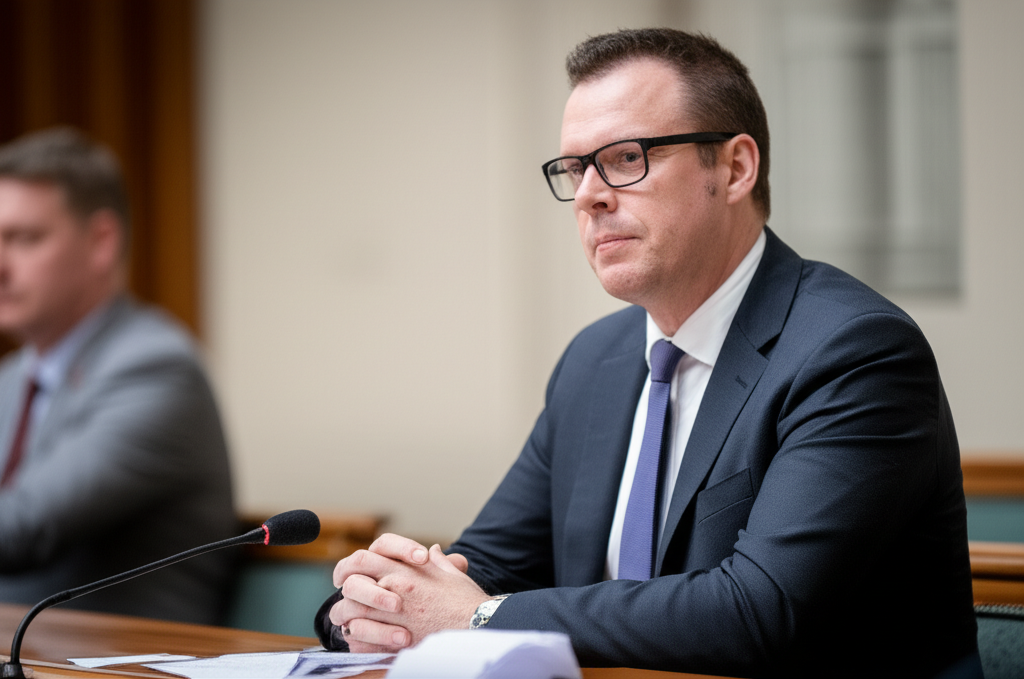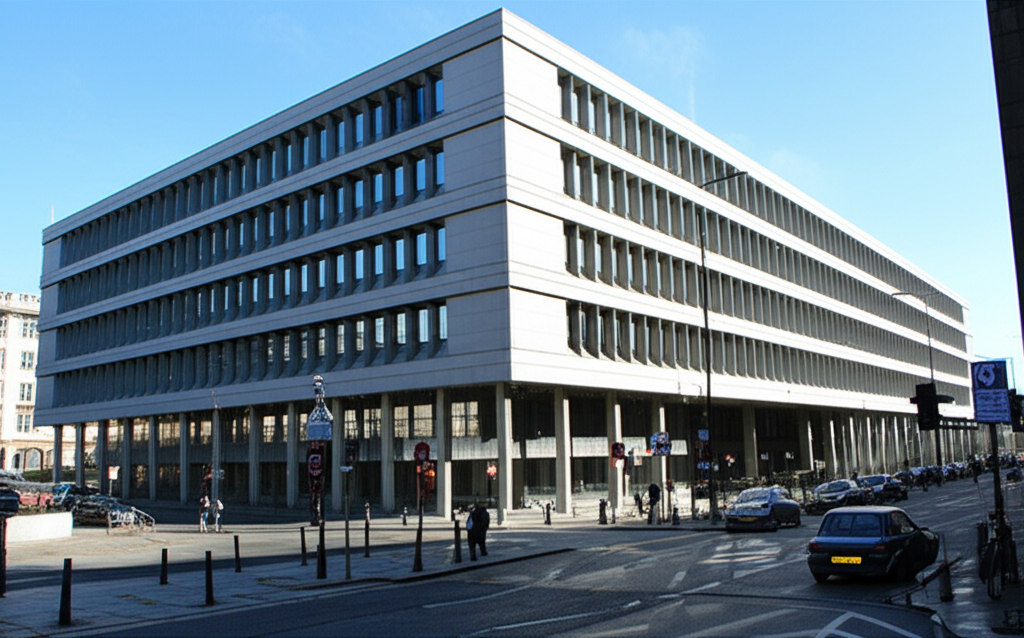
Health Department Receives Major Funding Proposal Amid Financial Scrutiny
Jersey’s government has unveiled a significant financial commitment to its healthcare system, proposing a substantial increase in the 2026-2029 **Jersey health budget** that aims to address long-standing fiscal challenges. The plan, announced on Tuesday, allocates £381 million for healthcare spending next year, marking an increase of nearly twenty percent compared to 2024 levels. Health Minister Tom Binet has expressed his approval for the proposal, suggesting it will place the department in a “much better place.” However, the plan has also drawn criticism from the government’s spending watchdog for a perceived lack of detail regarding its long-term financial sustainability. The proposal comes as the Health Department continues to grapple with a persistent deficit, having overspent its budget by £30.7 million in 2024 despite ongoing recovery efforts. In addition to the spending increase, the budget also introduces new charges for patients, including a fee for missed appointments and for using the Emergency Department for non-urgent care that could be handled by a general practitioner. While the minister argues the funding is essential after years of under-investment, the head of the Public Accounts Committee has raised concerns about the clarity and prudence of the government’s financial strategy for health services.

Details of the Proposed Financial Overhaul
The government’s intended Budget for the 2026-2029 period contains several key financial components designed to stabilize and improve the Health Department. The cornerstone of the proposal is the £381 million allocated for healthcare in the upcoming year, a substantial rise from the previous year. To directly address the department’s chronic deficit, the budget has specifically earmarked more than £60 million, which will be distributed as £15.6 million annually until 2029. This targeted funding is intended to plug the gap that has plagued the department’s finances for years. Alongside these direct investments, the ministerial plans introduce new revenue-generating measures. A £55 charge will be levied on patients who miss an outpatient appointment. This policy is aimed at the estimated 12,000 patients who fail to attend their scheduled appointments each year, a situation that creates significant inefficiencies and costs within the system. Furthermore, individuals who attend the Emergency Department for conditions that could be addressed by their GP will also face a new charge. The fee will be set at the same rate as those charged by Jersey Doctors on Call, which is £77 for Islanders and £97 for non-residents. These measures represent a multi-faceted approach to not only increase funding but also to modify patient behavior and improve the overall efficiency of healthcare delivery.
Minister’s Perspective on Funding Needs
Health Minister Tom Binet has been a vocal advocate for a larger budget, having previously warned of “difficult decisions” if funding was not increased. He stated that he had to “argue quite hard” to secure the proposed increase and expressed gratitude that his ministerial colleagues recognized the pressing needs of his department. “I think that once we went through the detail, they understood the importance of upping the level of funding for Health and, as I say, in fairness they all agreed to put it into the Budget,” the minister commented. He now hopes for a similar level of support when the budget is debated in the Assembly. Deputy Binet has consistently argued that the department’s financial struggles, including a significant overspend in 2024, are a result of historic underfunding rather than mismanagement. “Over the last three years, there has been a huge effort made to save money. We’ve had the financial recovery plan, which has demonstrated millions of pounds worth of efficiency savings,” he explained. “And against that backdrop, I think you have to reach the conclusion that we simply weren’t putting enough money into health.” He noted that rising healthcare costs are a global issue, stating, “Everybody is finding health inflation is running way ahead of standard inflation.” Despite these challenges, he is confident the new budget will put the department on a more stable footing.
- The proposed 2026 health budget is £381 million, a nearly 20% increase from 2024.
- A new £55 charge will be implemented for patients who miss outpatient appointments.
- The department overspent its budget by £30.7 million in 2024.
- The budget allocates over £60 million through 2029 to address the department’s deficit.
- Emergency Department visits for non-urgent issues will incur a charge of £77 for Islanders.
Scrutiny from the Public Accounts Committee
While the investment in health has been acknowledged as important, the proposal has not been without its critics. Deputy Inna Gardiner, who chairs the Public Accounts Committee (PAC), has voiced significant concerns about the plan’s lack of clarity. The PAC previously published a report in July that raised strong concerns about health spending. Deputy Gardiner stated that while investment in health, education, and infrastructure is “vitally important,” she questioned the source of the funds and the government’s prudence with public finances. “The question for me is where is the money coming from and how prudent has government been with public finances – especially around health,” she said. Her primary concern is the absence of a detailed, sustainable funding model. The budget document itself notes that achieving proposed savings in 2027 “will require choices to be taken in the next Budget, informed by robust analysis,” a statement which Deputy Gardiner suggests indicates that difficult decisions are being postponed. “We need to have clarity on how this money will be spent and what it will deliver to the public,” she insisted. “We don’t have a sustainable funding model, we won’t have a workforce plan before the Budget is debated and we don’t know how health will be funded going forward.” She also pointed out the discrepancy between spending and outcomes, noting that Jersey is one of the highest per capita spenders on health in the OECD, yet waiting lists are not being reduced.

Background: A History of Financial Challenges
The proposed **Jersey health budget** increase is set against a backdrop of persistent financial difficulties for the department. For years, the Health Department has struggled to operate within its allocated funds, leading to a series of deficits and recovery plans. Despite the implementation of a Financial Recovery Plan, which Deputy Binet credits with achieving “millions of pounds worth of efficiency savings,” the department still overspent by a substantial £30.7 million in 2024. The problem has continued into the current year, with data from June showing an ongoing overspend of approximately £1 million per month. Minister Binet attributes this chronic overspending to a legacy of inadequate investment. He firmly believes the core issue has been a failure to allocate sufficient funds to meet the rising costs and demands of modern healthcare, a problem compounded by global health inflation that outpaces standard inflation. This perspective frames the current overspend not as a failure of management but as an inevitable consequence of an under-resourced service. The new budget, with its dual approach of a significant funding injection and measures to plug the deficit, is presented as the definitive solution to break this cycle of financial instability and place the department on a sustainable path.
“Over the last three years, there has been a huge effort made to save money. We’ve had the financial recovery plan, which has demonstrated millions of pounds worth of efficiency savings. And against that backdrop, I think you have to reach the conclusion that we simply weren’t putting enough money into health.”
What’s Next: The Path to Implementation and Improvement

With the budget proposal now public, the next critical step is the debate and vote within the Assembly, where Minister Binet hopes to find the same level of acceptance he received from his ministerial colleagues. If approved, the focus will shift to implementation and continued reform. The minister has emphasized that the increased funding is not a silver bullet and that fiscal discipline remains paramount. “We’ve got to be vigilant, we’ve got to carry on with the financial recovery programme, to keep making the savings,” he stated. Beyond finances, Deputy Binet outlined a strategy for operational improvement. A key initiative is the establishment of a partnership board, which will be discussed in the next Assembly session. This board is intended to bolster communication and streamline decision-making processes across the health network. This structural reform will be supported by a significant technological upgrade. “That’ll be overarched by digital connectivity, which is going to make it a lot more efficient,” the minister added, highlighting the government’s commitment to leveraging technology. The ultimate goal, as stressed by the minister, is patient-centric. “We’re using every resource that we can to increase efficiency, increase output and improve patient care, because at the end of the day, what really is important is getting it right for the patient.” However, challenges remain, as highlighted by Deputy Gardiner’s point that a comprehensive workforce plan will not be ready before the budget is debated, leaving questions about staffing and service delivery unresolved for now. [Source]






